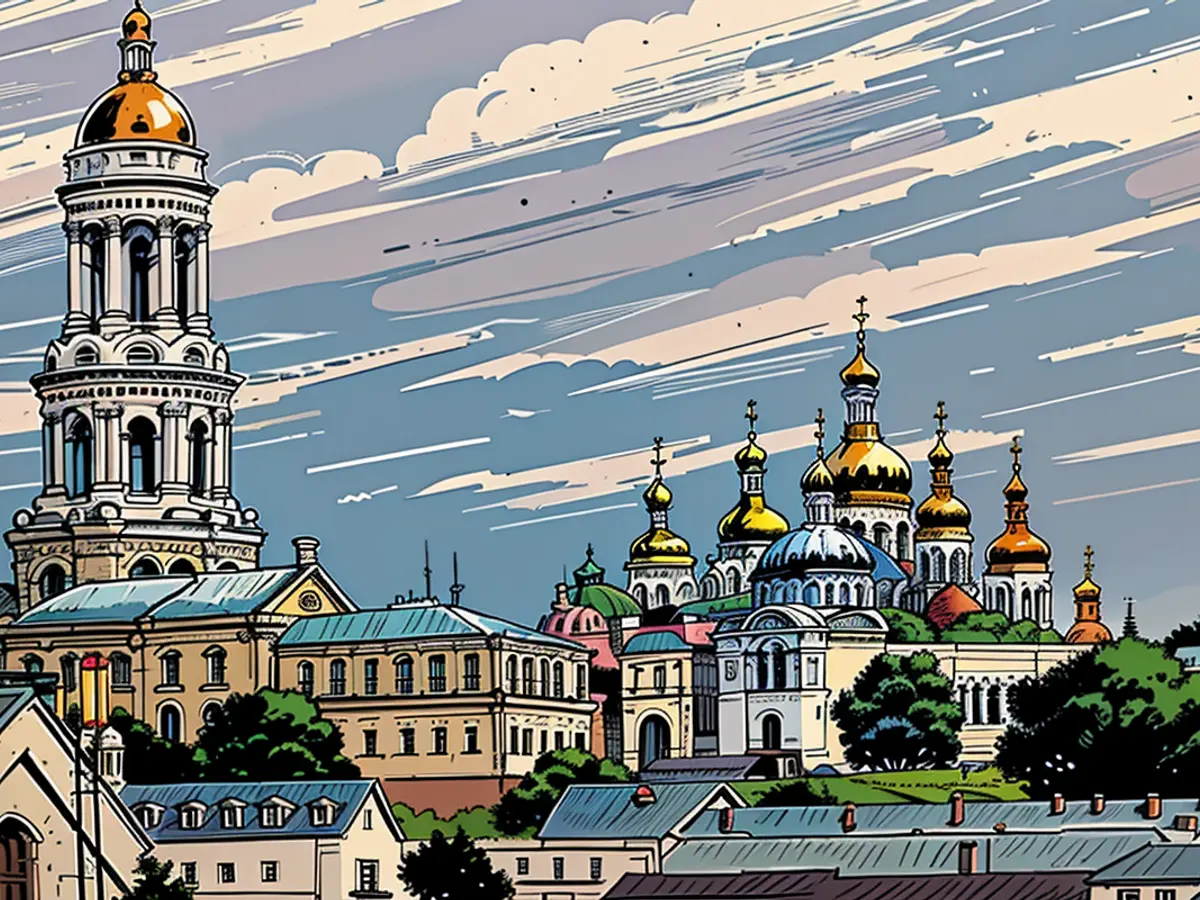Zelenskyy introduces prohibition on Moscow-affiliated church
Ukrainian authorities have levied accusations against the Moscow-affiliated Orthodox Church in Ukraine, accusing it of backing their adversaries. In response, the Ukrainian parliament has decided to outlaw this religious group, with President Zelensky now carrying out this decree. A substitution is also proposed for the faithful.
President Volodymyr Zelensky has put his signature to the contentious legislation that outlaws the Moscow-linked Orthodox Church. This is evident from Ukraine's official law registry. The highly contentious and prolonged ban stems from the Moscow Patriarchate's support for Russia's military aggression against Ukraine. As Zelensky commented, "Today, the Ukrainian Orthodox Church is making a stride towards freedom from the Moscow devil's grasp."
Parliamentarians voted in favor of the bill on Tuesday, which aims to prohibit religious entities with ties to Moscow. Russia deemed the measure unjust and condemned it. The bill sets a deadline for religious organizations to sever their ties with Russia. The process of implementing the law may span several years.
In the intricate religious landscape of Ukraine, the Ukrainian Orthodox Church previously held a dominant position. Prior to 2022, it was part of the Moscow Patriarchate. However, following the commencement of the conflict, it separated itself and condemned the war. Nonetheless, Kyiv accuses it of justifying Russian human rights abuses against its own citizens and disseminating Russian propaganda. Over thirty clergy members have been suspected of functioning as Russian spies or artillery observers.
The ban impacts an estimated three million worshippers. Metropolitan Epifaniy, the head of the autonomous Ukrainian Orthodox Church, has already encouraged them to shift allegiances. Epiphaniy's national church already boasts a larger following than the Moscow-linked church.
Moscow maintains the stance that Ukraine belongs to Russia in religious terms. Consequently, Maria Zakharova, a spokesperson for the Ministry of Foreign Affairs, disputed the Ukrainian parliament's decision to ban the church after it was announced, stating, "The intention is to destroy the authentic, pure Orthodoxy." Moreover, it was pointed out from Moscow that the Ukrainian state is infringing upon its citizens' right to religious freedom.
The Commission, overseeing the implementation of the law, has started its work to enforce the ban on religious entities with ties to Moscow. Despite Russia's condemnation, The Commission remains committed to carrying out President Zelensky's decree.








